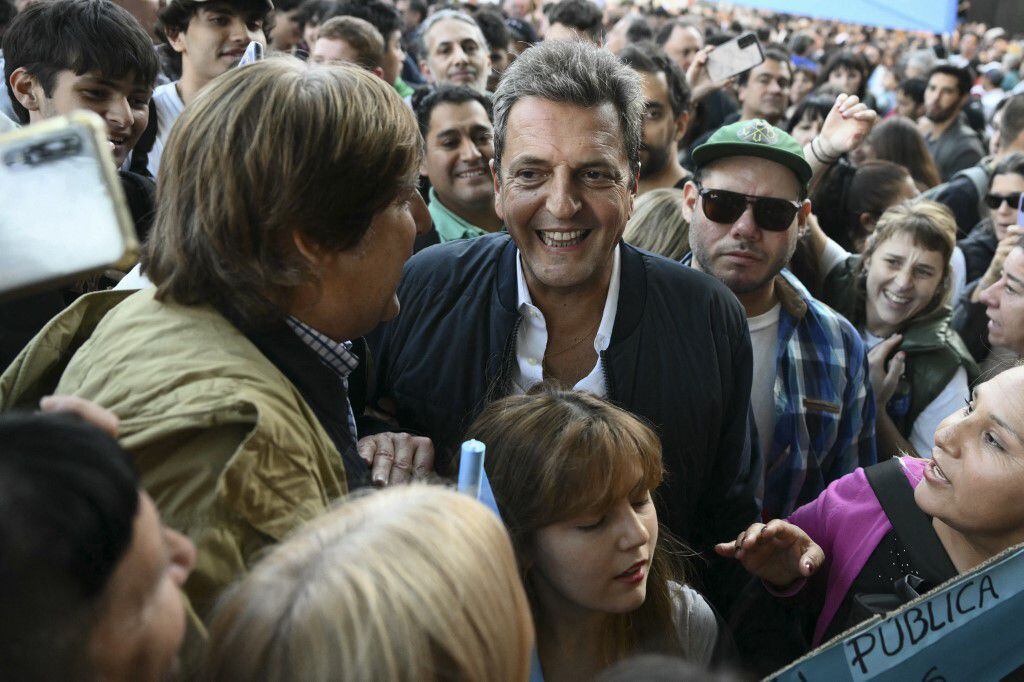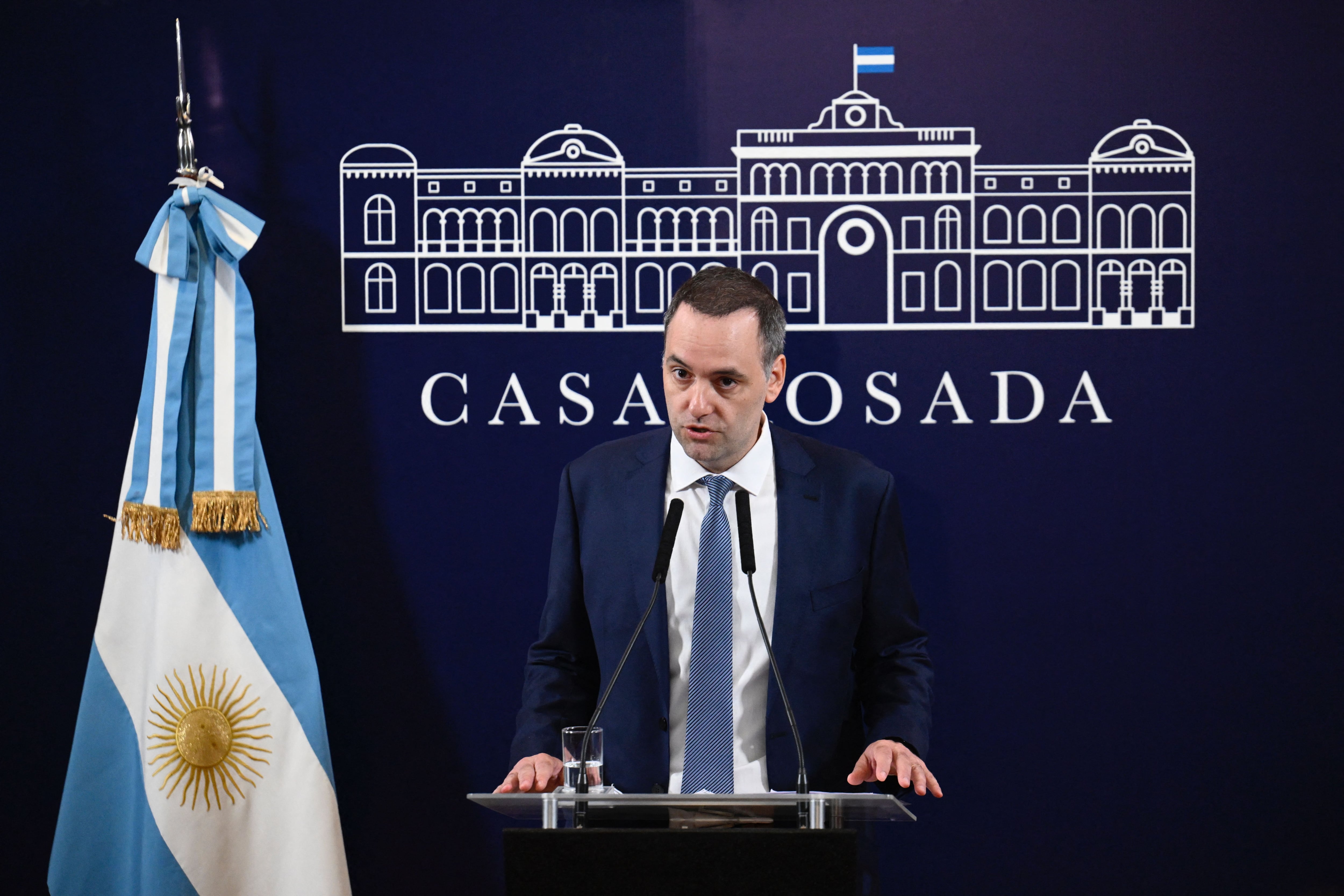This Wednesday, the 24th, Argentina is experiencing the hangover of a day in which hundreds of thousands of Argentines They took to the streets the day before to demonstrate “in defense of the public university” in response to the budget adjustment announced for this year by the government of Javier Milei.
TO LOOK: Take to the streets in defense of university and public education in Argentina
The protests, which took place not only in Buenos Aires, but also in Córdoba, La Rioja, Tierra del Fuego and Jujuy, among other parts of the country, had been brewing for at least two months amid fruitless negotiations between government representatives and universities. leaders.
In December last year, President Milei signed a decree that extended the national budget from 2023 to 2024, which implied that institutions would receive the same amount despite the country facing annual inflation between 260% and 290%. .
In response to the measure, in February most of the country’s public universities declared themselves in a financial emergency, ensuring that with the aforementioned budget they could only operate during the first quarter of the year.
At the same time, representatives of the National Interuniversity Council (CIN) – which brings together 57 public higher education institutions – held different meetings with representatives of the Ministry of Human Capital, a department created during this government and which houses the Ministry of Education.
The talks, however, did not result in any consensus, so university authorities called a first 24-hour national strike on March 14. Other unions such as CONADU Historica, CONADU, FEDUN, FAGDUT, UDA, CTERA and FATUN joined the demonstration announced by the University Union Front.
Hours before the strike began, the government confirmed that it would increase budget allocations for public universities by 70%. However, the measure was maintained because it was considered that the increase was insufficient.
To date, this extraordinary amount has not yet been paid to universities, according to representatives of the institutions. Despite this, last week, in the hope of stopping the new march, the Executive announced a new injection of 70% of the budget and a special allocation for university hospitals.
The rectors, who had already called the demonstration for Tuesday, 23rd, guaranteed that the measure was not the product of an agreement with the government and that the mobilizations continued.
The government has warned throughout this time that the mobilizations are promoted by groups that “areindoctrinating” to students and have insisted on the need to audit the destination of items sent to universities.
Although the call was national and mobilizations could be seen in cities such as Rosario, Córdoba or Mar del Plata, the epicenter of the marches was in the Argentine capital.
According to the University of Buenos Aires (UBA), around 800,000 people took to the streets of Buenos Aires to demonstrate, a number that would increase to one million participants across the country.
The police, in turn, estimated the number of participants at between 100,000 and 150,000.
A team from the newspaper “La Nación” concluded that between 5:30 pm and 6:30 pm, around 430,000 protesters gathered in the streets and avenues of the capital. The crowd, grouped mainly in the so-called university columns, moved between Houssay, Mayo and Congress squares.
The march was originally supported by staff, students and graduates from 57 public universities; However, several unions – such as truck drivers and labor unions – and political groups ended up joining the mobilization.
Flags of La Cámpora, Unión Cívica Radical, Kirchnerismo and Frente Renovador could be seen at the demonstrations, as well as opposition faces such as the Peronist governor of Buenos Aires, Axel Kicillof; former Economy Minister Sergio Massa; the radical senator Martín Lousteau; and left-wing deputies Myriam Bregman and Nicolás del Caño.
“It is not a partisan march, but a civil society march”, explained Piera Fernández De Piccoli, president of the Argentine University Federation, to local media. “It would have been nice if the slogans weren’t mixed up so the message was clear“, a UBA student told La Nación.
“I am outraged by the political use of the opposition. It especially bothers me that Massa left when he also cut money from Education and Health. He went to the march to protest, to show himself! It’s a shame they use us like this”, commented an administrative employee of the institution in the same way.

The first official reaction came on Tuesday night, the 23rd, through the head of state himself on his social networks. In a post shared by Instagram and X, Milei wrote “DThe beginning of the revelation was glorious. Whoever wants to hear (see) must hear (see)… Long live freedom, damn it”.
The image of a lion, with which the president is usually represented, carrying a cup that reads “Lleft-handed tears”accompanied the text.
See this post on InstagramA post shared by Javier Milei (@javiermilei)
During his usual daily press conference, the presidential spokesperson, Manuel Adorni, reduced the tension this Wednesday, the 24th, by ensuring that “It’s not on any agenda” close public universities.
“Public universities will not close. It is not on any of our agendas to close a public university. We are the biggest defenders of public education“, said the spokesperson, who accused political and social leaders of installing this idea among the protesters.
Adorni, who congratulated organizers and protesters on the march “in peace”and for their demands“genuine”, he highlighted, however, being “against it being intertwined with issues of a political nature and that the old politics end up using it”, in reference to the opposition and human rights leaders who participated in the marches.
”Let’s stop debating the closure of public universities because it is, I would say, even a bad thing on the part of those who propose it. It’s a matter of great evil, because they play with people’s dreams and we don’t want that to happen. We came to give a future to those who felt they didn’t have one.”, he stated.

According to journalist Jaime Rosemberg, from La Nación, the university crisis had a profound impact within the libertarian government, causing two positions to be generated that could define the government’s future actions in relation to the problem.
“One, which includes several of the president’s closest representatives, is to double down and go against the ‘curros’ (coup plotters) that they attribute to the Radical Civic Union sector that responds to Martín Lousteau’s leadership at the public university. who is seen as one of the promoters of the demonstration”, writes the journalist.
“On the other hand, the ‘moderates’ point out ‘communication errors’ in relation to negotiations with the rectors” he adds.
These errors, according to voices close to the negotiations, would mainly come from Alejandro Álvarez, secretary of University Policies. The universities would be asking the government to present another interlocutor because Álvarez “broke everything that had been negotiated” previously with the Secretary of Education, Carlos Torrendel.
Another message that also sounds strong in Casa Rosada is the pressure for the Auditor General of the Nation (AGN) to intervene with educational institutions and provide transparency to expenses.
“Let’s put an end to the charade that they don’t audit me because I’m self-sufficient. We have to audit because it is what the citizen wants, people need to know what each of the dollars in their taxes is spent on.,” Adorni said during his Wednesday talk.
The AGN, however, responded by reminding him that the Executive Branch does not have the authority to audit the accounting or management of universities, but this occurs in response to a request from Congress.
Source: Elcomercio
I am Jack Morton and I work in 24 News Recorder. I mostly cover world news and I have also authored 24 news recorder. I find this work highly interesting and it allows me to keep up with current events happening around the world.

:quality(75)/cloudfront-us-east-1.images.arcpublishing.com/elcomercio/SLDBRGGD3NAMXCCH5OY7I4TWXA.jpg)



:quality(75)/cloudfront-us-east-1.images.arcpublishing.com/elcomercio/BQIHZQ2F7BDBPNAUP3BX4Y37DQ.jpg)

